Every year, excited students arrive on Duke’s campus carrying luggage, boxes and many other personal items. Some are seen clutching teddy bears from childhood. Others are being dropped off by emotional parents. Excitement, worry, anxiety and all the other complex emotions that come with migration are palpable.
In this sea of people are a group of students for whom this is an experience not only laden with long layovers, hysterical goodbyes and family farewells, but spicy cooking ingredients, traditional ethnic clothing, flags and many other items of cultural significance to the African continent. Whether they’re donning curly hair or thick afros or braids, the African student stands out for many reasons: There is usually an ethnic bracelet, ring or African print somewhere on their dress, notepad or handbag. Some are coming from different countries in Africa, and others are coming from homes in the United States saturated with hints of their African heritage.
Students from Kenya, Nigeria, Ghana, Zimbabwe, Bostwana and other African countries chose to attend universities across the United States for various reasons, be it seeking a study abroad or finding better universities for their desired goals. When they set foot on the schools’ campuses, their determination to succeed and their hesitation in foreign cultures are evident in the many stories that later become topics of discussion at student associations formed by their predecessors.
But one important discussion for many African students is how to remain rooted in their culture while being in a new and alienating place. Many carry different items that not only remind them of home but signify their identity as Africans — items they hold dear.
As a graduate student from Nigeria, and also an “educational migrant” here at Duke for a study abroad, I brought many items with me: my ethnic group’s silver bracelets and gold earrings, our traditional veils, African prints designed in many styles and my mother’s prayers. I wanted not only to remember home but also to take my culture with me everywhere I went.
As a naturally curious person, I wondered what other ‘’educational migrants’’ brought with them — specifically, the clothes that represent or remind them of home. I began to photograph other African students at Duke and invited them to share their stories and their emotional attachment to their certain African heritage with me. I was interested in the intersection of cultural identities and fashion sense.
What parts of your culture do you bring with you to a new country? How do you express yourself? What attire represents your respective culture or forms your cultural identity?
Christine Ashimwe (Rwanda)
Junior, Visual and Media Studies
“I never thought of myself as wearing my traditional clothes. For as long as I've [remembered], we've always used the gukenyera instead of just wearing it, because it means more than just dress up. Gukenyera is an act that symbolizes and epitomizes the moment. It's done to honor celebrations, in remembrance of loved ones, as a testament of unions between families and as a matter of national pride.”
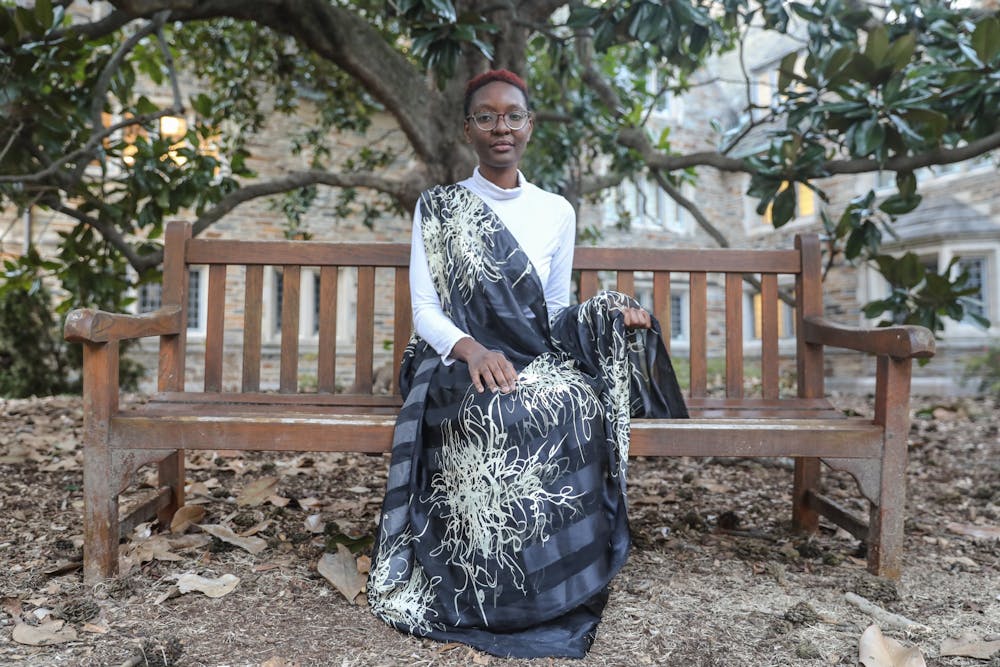
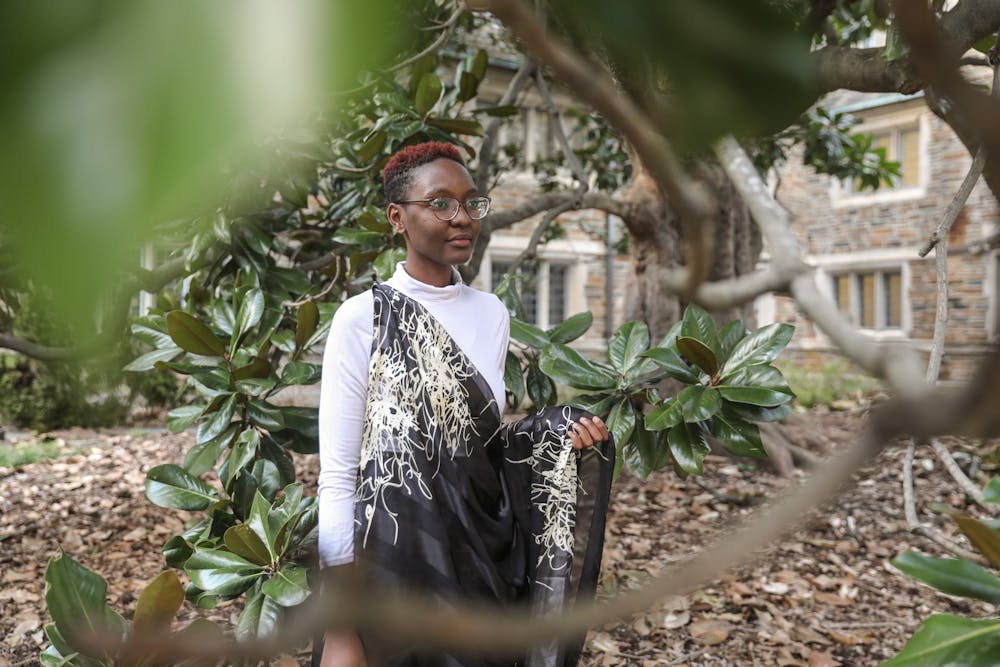
Seun Okimi (Nigeria)
Fourth year, chemistry
“Each of my ankara outfits has a story. Whether it’s the fabric I watched being haggled in Lagos markets, the design I drew up carefully and was able to watch come to life or the extra touches from family members who gave them as gifts — each one has a story. I wear my ankara like a story, a reminder of these stories from a place so far that its stories can be too easily forgotten.”
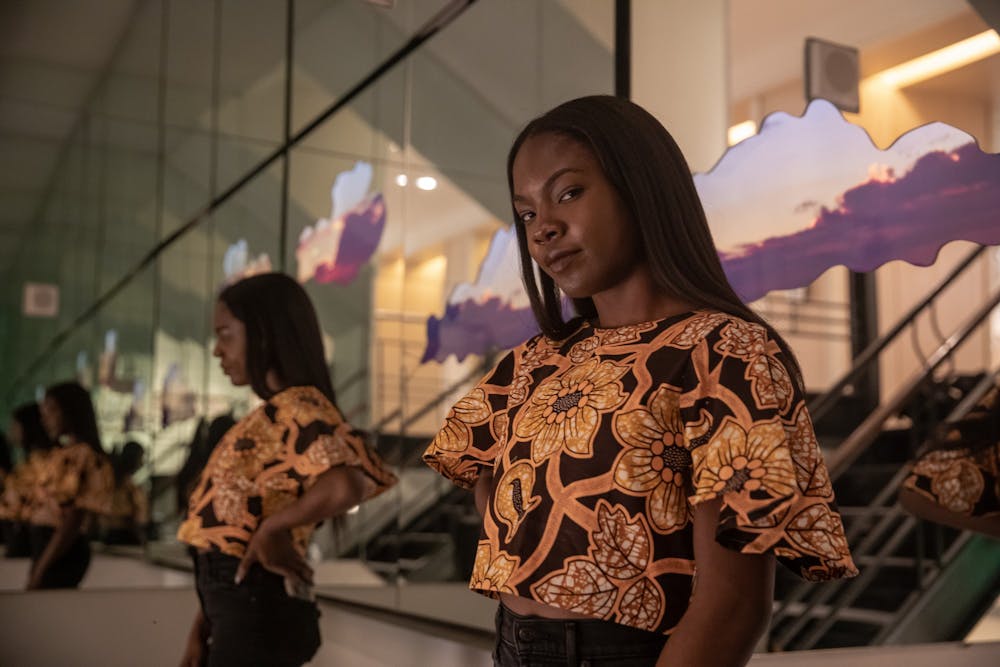
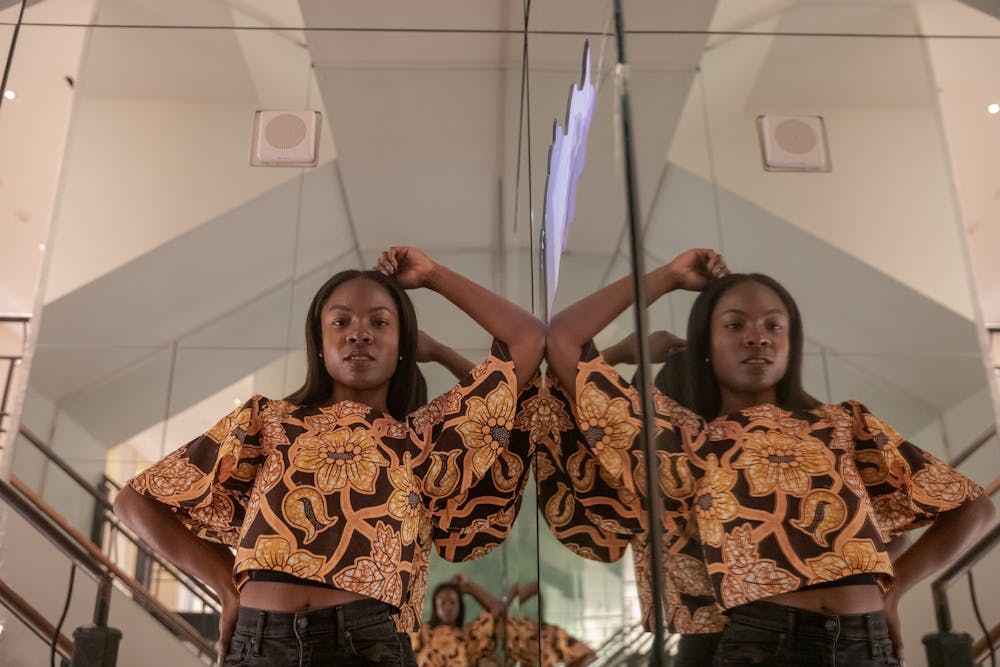
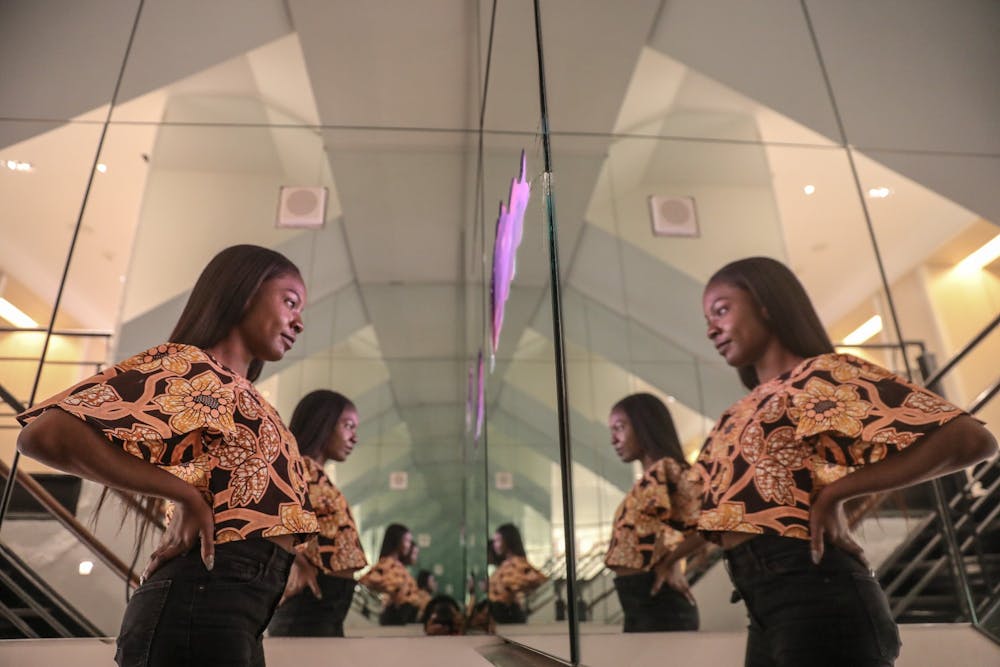
Celine Murugi (Kenya)
Sophomore, computer science
“There is so much weight in the fabric, colors, patterns and accompaniments of an African outfit. As I wear these garments, I wear small fragments of my culture, traditions and my birth place. They are perfectly blended together to represent that which I call home.”
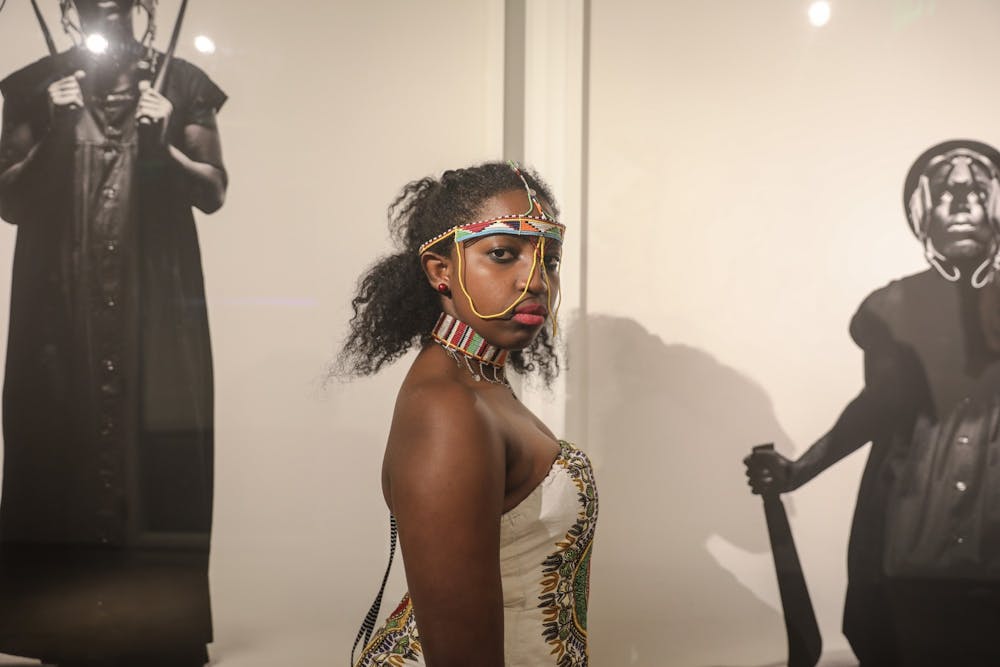
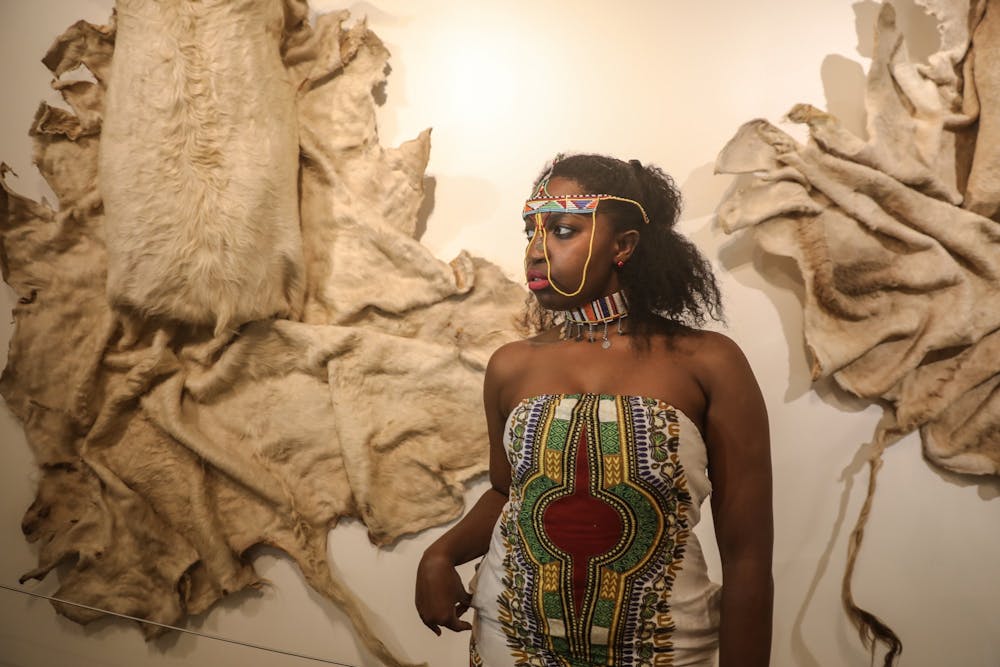
Natalie Ezem (Nigeria)
Second year, sociology
“For a child who was born away from home, the attire has always been a way for me to reconnect. A way for me to appreciate what my ancestors created. It has become a part of my identity and it’s important to recognize.”
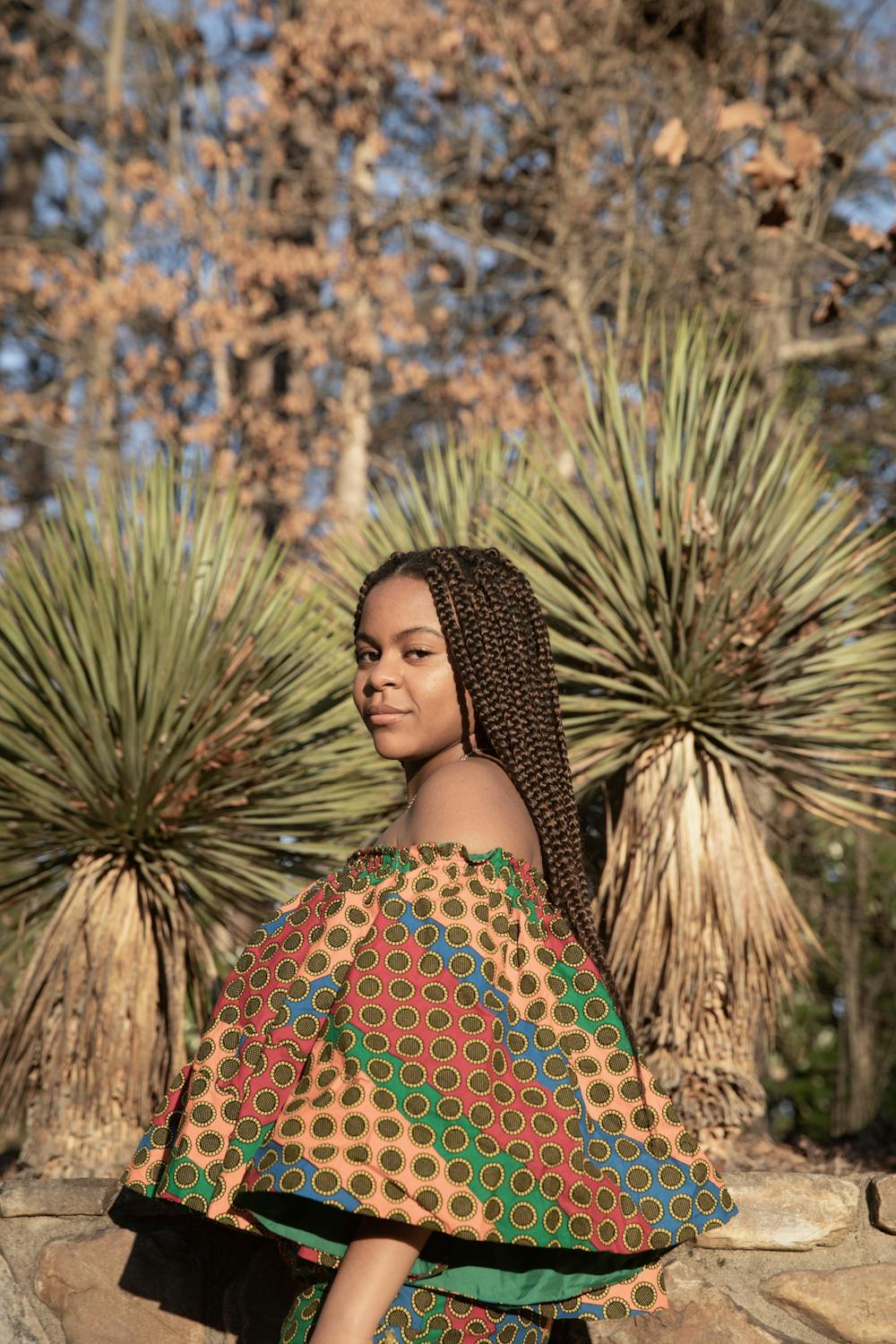
Shami Chideya (Zimbabwe)
Sophomore, mechanical engineering
“My perception of wearing traditional attire has evolved with time. When surrounded in areas where most don’t look like myself, I was self-conscious wearing something distinctly Zimbabwean. I always thought I was unnecessarily branding myself or making a political statement of sorts. After visiting Zimbabwe more recently, wearing clothes, accessories or even a headscarf are a gentle reminder of home. In that way, I wear traditional attire for a sense of familiarity no matter where I go.”
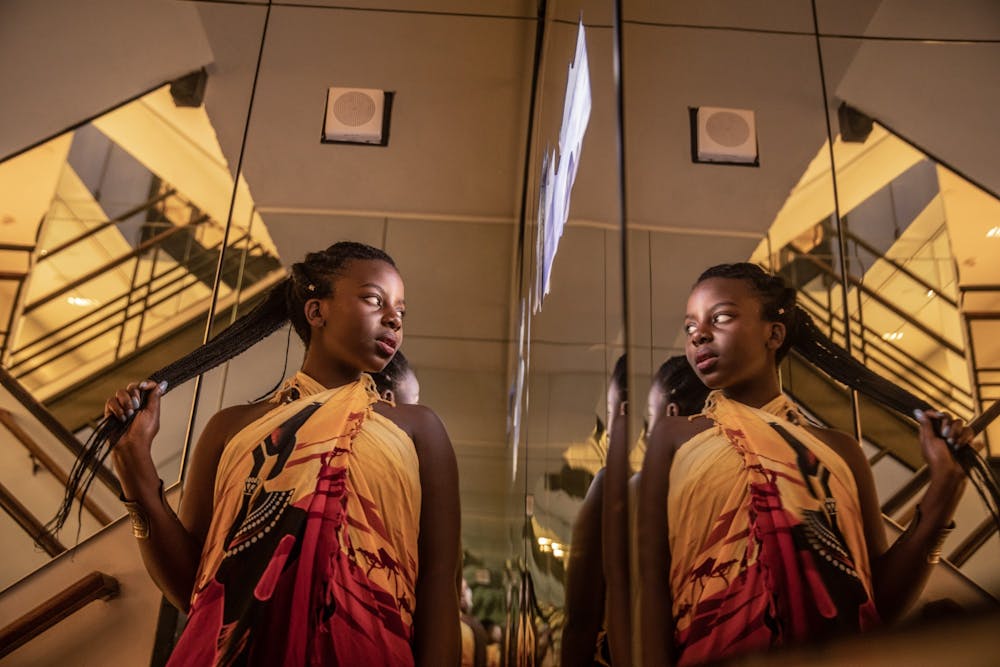
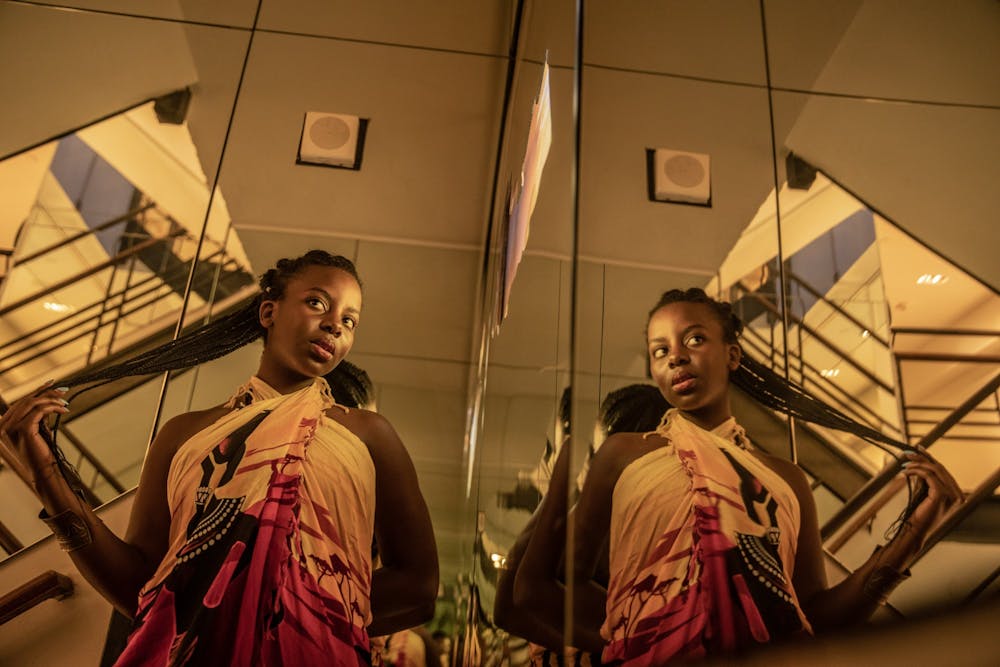
Dorothy Oye Adu-Amankwah (Ghana)
Senior, English
“One of the heritages of an African is the attires that have been woven by centuries of history. When I express this heritage, I can choose to be queenly or casual or daringly bold. But other times, I simply allow the bright colors to speak for my quiet soul.”
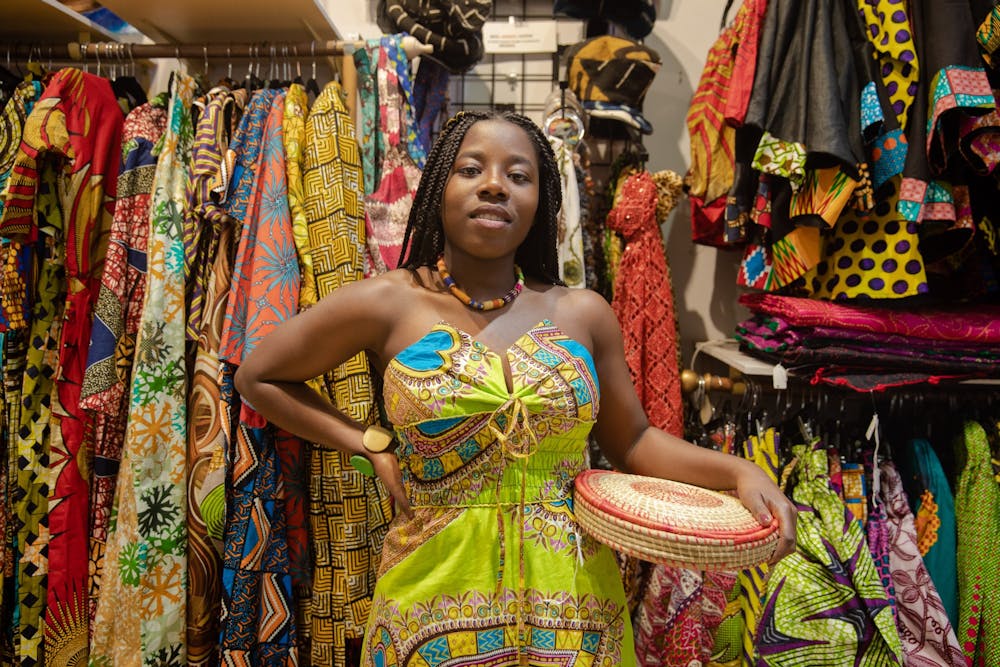
Moarabi Kakabalo (Botswana)
Senior, electrical and computer engineering
“African attire gives me a sense of identity. It connects me to my roots.”
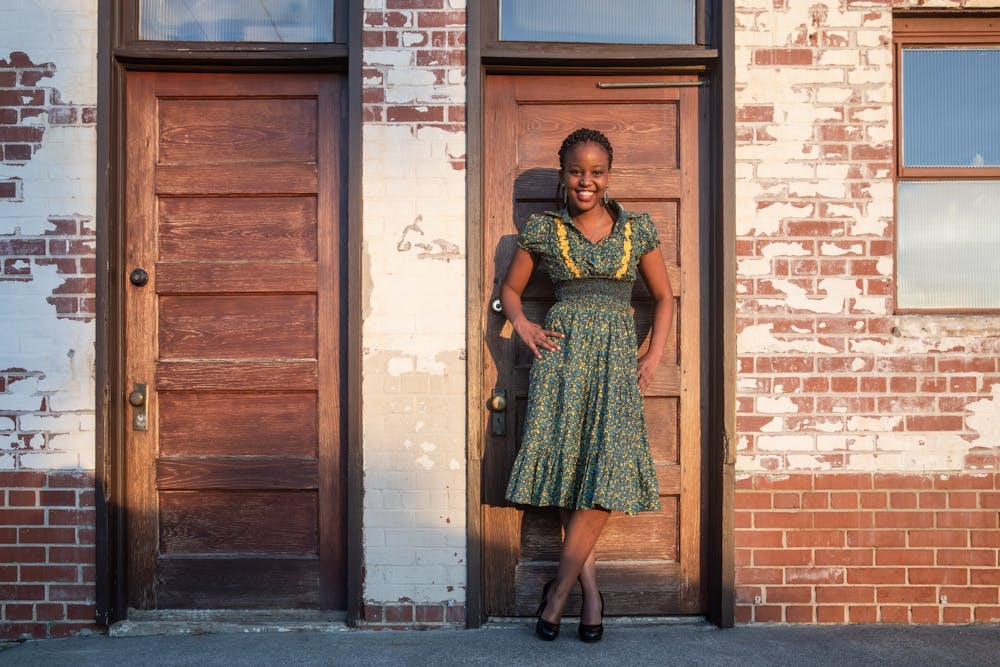
Get The Chronicle straight to your inbox
Signup for our weekly newsletter. Cancel at any time.
